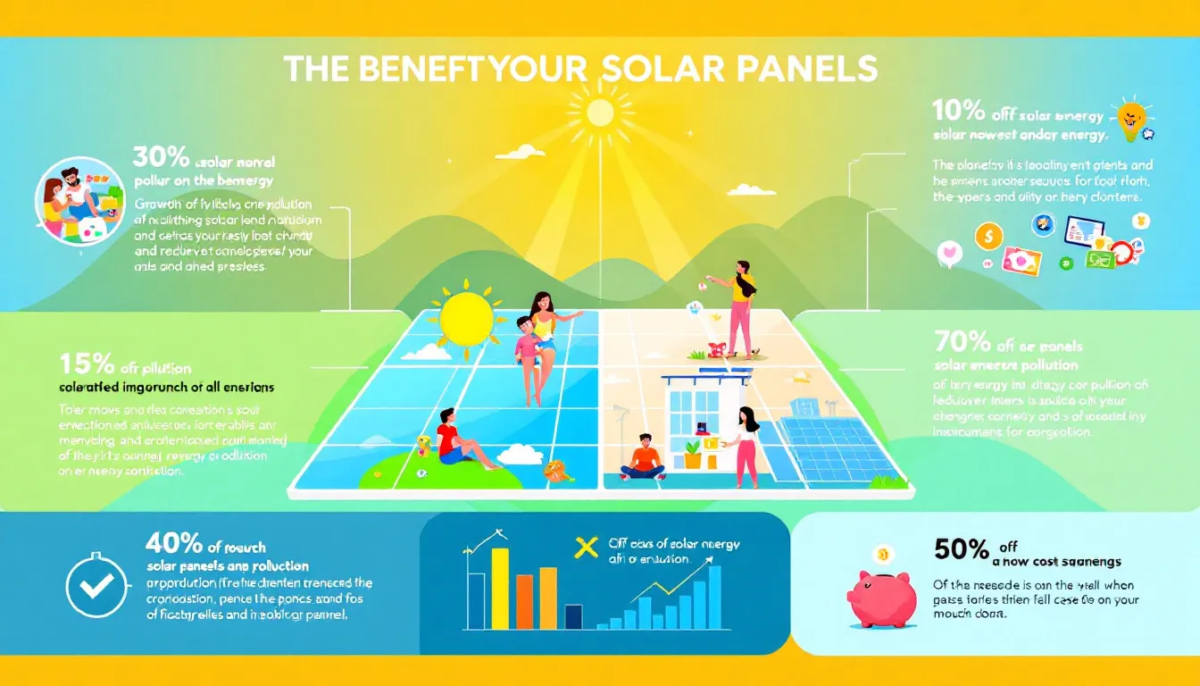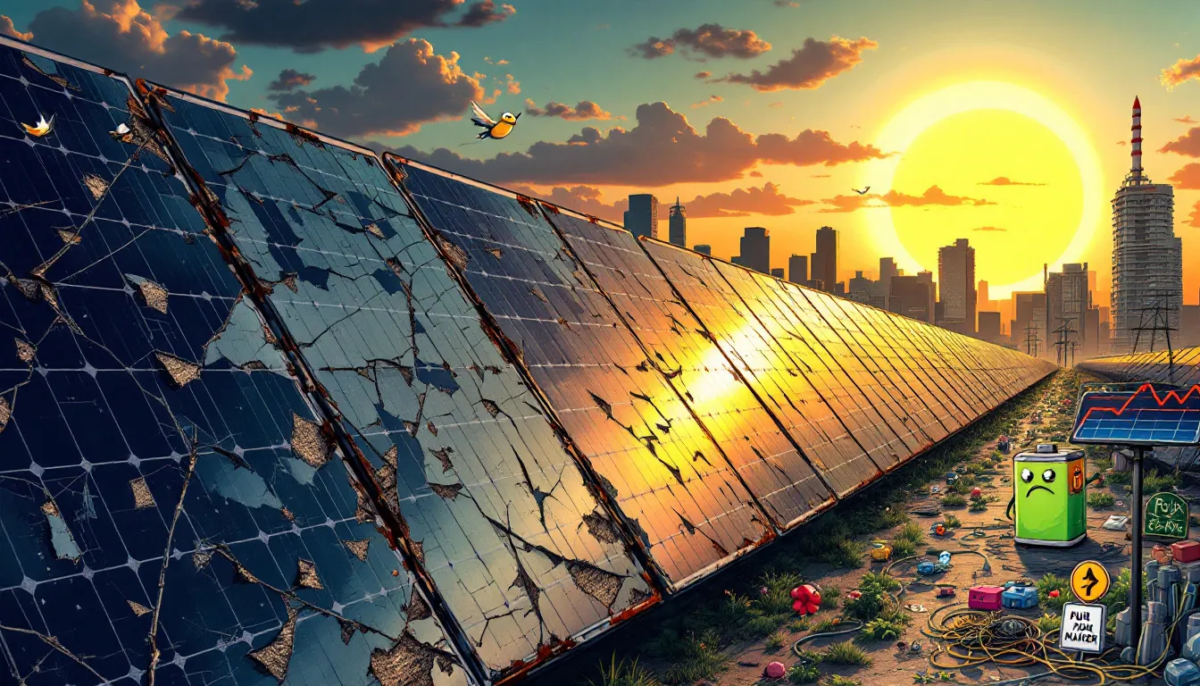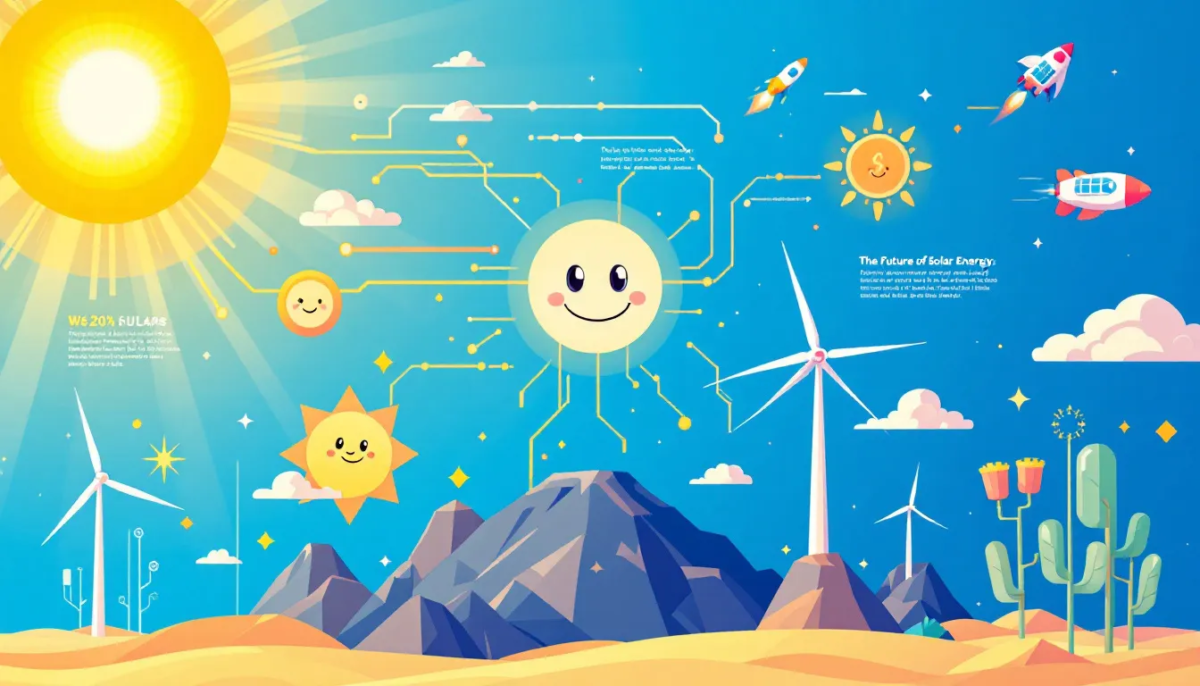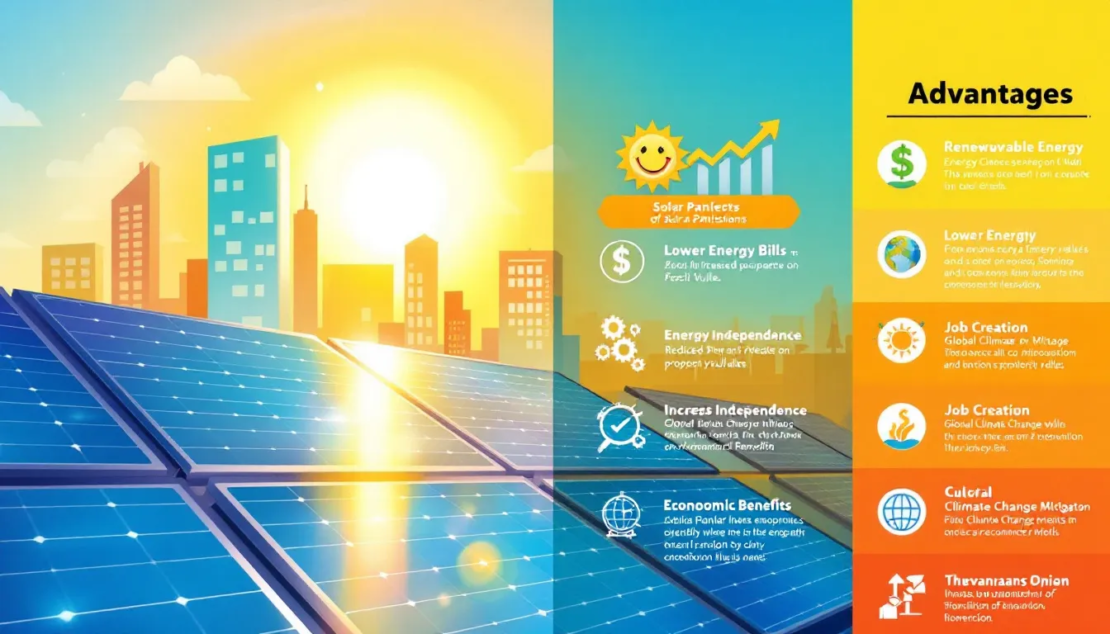Advantages and Disadvantages Of Solar Panels
Advantages and Disadvantages Of Solar Panels
Curious about installing solar panels? This guide covers the advantages and disadvantages of solar panels, helping you decide if they’re a good fit for your energy needs. We’ll explore key benefits like cost savings and drawbacks like installation challenges.
Key Takeaways
- Solar panels help reduce electricity bills and require low maintenance, making them an attractive renewable energy option.
- High initial costs and weather dependency are significant drawbacks that potential users must consider before installation.
- Innovations in solar technology are driving down costs and expanding applications, paving the way for broader adoption of solar energy.
Advantages and Disadvantages of Solar Panels: A Comprehensive Guide
Understanding the pros and cons of solar panels is crucial for making informed renewable energy decisions. Solar energy harnesses the sun’s radiation, providing an abundant and sustainable resource that can significantly reduce reliance on fossil fuels.
However, both advantages and disadvantages should be weighed. While solar energy systems and solar power systems can lower energy costs and promote sustainability, factors like weather conditions and installation space can impact their effectiveness in the solar system.
This guide explores the pros and cons of solar panels to help you make an informed decision.
Introduction
In today’s world, making informed decisions about renewable energy adoption is crucial. With the shift towards sustainable solutions, comprehending the benefits and drawbacks of solar energy is essential.
This guide presents the main benefits and drawbacks of solar energy, providing a balanced view to help you decide if solar panels are a suitable investment for your home or business.
Understanding Solar Energy
Solar energy is a clean and renewable power source derived from the sun’s radiation. Solar panels harness this energy to produce electricity, contributing to global energy needs in an eco-friendly manner.
Adequate roof space or alternative locations with good exposure are necessary for optimal solar panel installation. Weather conditions and time of day can impact solar energy availability. Despite these factors, solar energy remains a powerful tool for reducing dependence on fossil fuels.
What is Solar Energy?
Solar energy, derived from sunlight, is a sustainable and renewable energy source. Harvesting electrical or thermal energy from sunlight makes solar energy a clean and inexhaustible resource.
How Do Solar Panels Work?
Photovoltaic cells in solar panels absorb sunlight photons, releasing electrons to create an electric current. These cells are made of semiconductor materials that generate electricity when exposed to sunlight.
Importance of Solar Energy
Solar energy reduces fossil fuel demand, mitigates air pollution, and contributes to energy independence and a more sustainable future. Recent advancements in solar technology have made harnessing the sun’s power more efficient.
Advantages of Solar Panels

Solar panels offer numerous solar energy advantages. They reduce electricity bills, require low maintenance, increase property value, and provide significant environmental benefits.
These benefits can help determine if solar energy is suitable for you.
Renewable Energy Source
Solar energy is an endless resource that helps reduce reliance on non-renewable sources. The sun provides enough energy in 1.5 hours to meet global needs for a year, making solar power a sustainable option.
Reduces Electricity Bills
Solar energy can help homeowners save on monthly electricity bills. Generating their electricity allows homeowners to reduce grid reliance and achieve significant savings.
Low Maintenance Costs
Solar panels are designed to require minimal maintenance. They usually need only occasional cleaning and inspections, resulting in low maintenance costs.
Increases Property Value
The energy savings and sustainability of solar panels can increase property value. Homes with solar panels can see a value increase of around 14%, attracting prospective buyers.
Environmental Benefits
Solar panels significantly reduce greenhouse gas emissions compared to traditional energy sources, thereby lowering our carbon footprint. This pollution reduction supports climate change efforts and promotes sustainable living.
Disadvantages of Solar Panels

Despite the many benefits, solar panels also have certain disadvantages. High initial costs, weather dependency, space requirements, energy storage challenges, and manufacturing environmental impact are key drawbacks to consider.
High Initial Cost
The high initial cost is the most significant disadvantage of solar panels. This involves substantial investments in panels, installation, and storage, with complete solar installations averaging around £14,000.
Weather Dependent
On cloudy or rainy days, solar energy generation drops significantly. Solar panels require direct sunlight for optimal function, and efficiency can drop to 10-20% during heavy rain.
Space Requirements
Space requirements are an important factor when installing solar panels. An adequate area is needed for optimal performance, and finding sufficient space can be challenging in densely populated areas.
Energy Storage Challenges
Energy storage challenges for solar panels include high costs and limitations in energy density and lifespan. For example, lithium-ion solar energy storage battery systems can cost between £5,500 and £11,000, making storage a considerable investment.
Manufacturing Impact
Producing solar panels involves greenhouse gas emissions from mining and manufacturing. Additionally, the limited materials required for solar technology add to the environmental impact of manufacturing panels.
Making the Decision
Installing solar panels requires considering various factors, including long-term savings, property evaluation, and available incentives and rebates.
This section guides you through these considerations to help you make an informed decision.
Assessing Long-Term Savings
Long-term savings from solar panels can significantly lower energy costs, justifying the initial investment. Generating their own electricity and selling excess energy back to the utility company helps homeowners protect themselves from rising power prices and save money over time.
Evaluating Your Property
Carefully analysing roof orientation and available space is crucial to maximising solar panel efficiency. Property evaluation is essential for optimal solar panel installation and performance.
Exploring Incentives and Rebates
Government incentives can significantly reduce the financial burden of solar panel installations, making them more accessible. Programs like net metering enable solar panel users to sell excess electricity back to the utility company, reducing their utility costs.
The Future of Solar Energy

The future of solar energy looks promising with ongoing technological advancements, decreasing costs, and expanding applications. As solar technology evolves, it will play an increasingly significant role in transitioning to sustainable energy.
Technological Innovations
Breakthroughs in solar technology, like next-generation perovskite solar cells and bifacial solar panels, promise to enhance efficiency and affordability. These advancements improve efficiency and help reduce the overall costs associated with solar energy systems.
Decreasing Costs
Decreasing solar panel installation prices makes solar energy more accessible to a broader range of individuals and businesses. As costs fall, the adoption of renewable energy sources will become more widespread.
Expanding Applications
Recent innovations in solar energy applications include floating solar farms, solar panels in clothing, and solar technology in roads. These innovative uses of solar energy could enhance energy access and sustainability in various sectors.
Summary
In summary, solar panels offer numerous advantages, including reducing electricity bills, requiring low maintenance, increasing property value, and providing significant environmental benefits. However, they also come with certain disadvantages, such as high initial costs and space requirements. By carefully considering these factors and exploring available incentives, you can make an informed decision about whether solar energy is right for you.
Frequently Asked Questions
What are the advantages of solar energy?
Solar energy is a fantastic renewable resource that’s available almost everywhere, providing local jobs and wealth. Plus, it requires minimal maintenance and is eco-friendly throughout its life cycle.
What are the disadvantages of solar panels?
Solar panels can be expensive to set up initially, require a good amount of space, and are dependent on weather conditions. Plus, there’there’shallenge of energy storage and the environmental impact of their manufacturing process to consider.
How do solar panels work?
Solar panels work by using photovoltaic cells that absorb sunlight and release electrons, generating an electric current. It’s a smartIt’s to harness energy from the sun!
Are there any government incentives for installing solar panels?
Absolutely, there are government incentives and rebates that can significantly reduce the cost of installing solar panels. Taking advantage of these can make solar energy not only greener but also easier on your wallet!
Can solar panels increase my property value?
Absolutely! Adding solar panels can boost your property’s value by approximately 14%, making it more appealing to buyers who appreciate lower utility costs and eco-friendly options.




